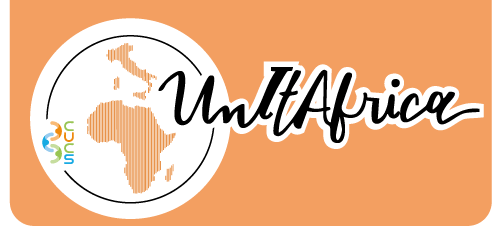May 26-27, 2025
Addis Ababa University - Ethiopia
Co-organizing University: Addis Ababa University
Master students, PhD Students Restricted to students enrolled at Addis Ababa University
In person
Group work for workshop
English

To provide journalism students with a solid understanding of key concepts in finance, financial markets, and banking. To highlight the most relevant measures of performance (financial, dimensional, qualitative, sustainable)- To enable participants to effectively communicate these concepts to the general audience.
(highlight the focus topic of the call):
A. Ecological transition and digitalization)
B. Rural development, land management, agrifood and food supply chains;
C. Health, water and hygiene, One Health;
D. Sustainable Energy, environment and natural resource management;
E. Entrepreneurial and industrial development for local prosperity;
F. Cultural heritage and sustainable tourism;
G. Social Sciences and Humanities.
SDGs: 4 (Quality education), 8 (Decent work and economic growth), 11 (Industry, Innovation and Infrastructure)
Since the course is designed for students with a background primarily in journalism, the content will enable a rigorous professional approach to the topics but will also focus on the quality of information and the selection of the most strategic data to achieve the goal of informing both a general audience and those specifically interested in financial topics, without To meet this objective, it is essential to provide an overview of the key players in financial markets—not only securities markets but also financial intermediaries, with their crucial role in granting access to financial services for households and small and medium-sized enterprises. Readers are certainly interested in information about thefinancial performance of markets and intermediaries, but also in the structure and accessibility of the products offered. Therefore, the course will emphasize both financial analysis and the content of financial products, which may be complex for non-experts, with a focus on effective communication. The sustainability of markets, intermediaries, and financial products will also be considered. In order to enhance effectiveness of the course, lectures will be complemented with analysis of real-world case studies, exercises and simulations.
falling into the technical jargon of specialists.
Range of possible topics to analyze (to be adapted and selected based on the type of audience).
Financial Fundamentals
Introduction to finance: capital, interest, inflation, risk, and return.
Economic principles: GDP, unemployment, inflation, and monetary/fiscal policies.
Key Players in the Financial System Banks, investment funds, pension funds, insurance companies, and venture capital firms.
Roles and operations of financial institutions.
Financial performance indicators and their analysis.
Financial Markets
Types of financial instruments: stocks, bonds, ETFs, derivatives.
Using market data: reading charts, trends, and major indices (e.g., S&P 500, FTSE MIB).
Corporate and Investment Banking IPO, OPA, OPS and mergers and acquisition
Financial crises, corporate scandals, and fraud.
Technology and Financial Innovation Fintech and blockchain: impacts on the financial system.
Cryptocurrencies and digital markets.
The role of technology in financial data and analysis (e.g., AI, Big Data)
Practical Workshops
Analysis of real-world case studies.
Exercises in writing financial articles.
Simulations of press conferences and real-time reporting.

